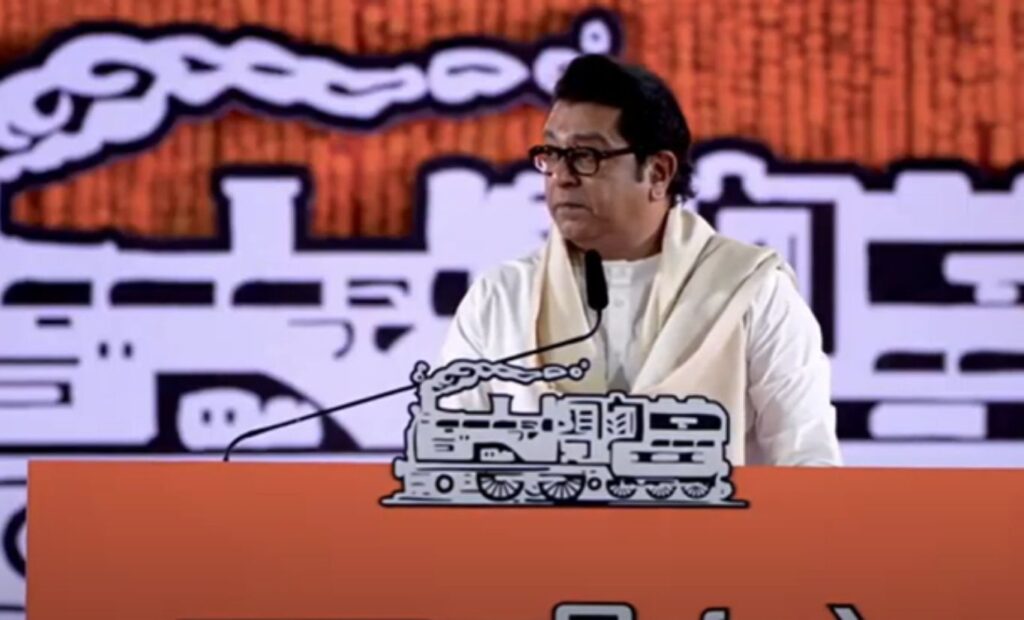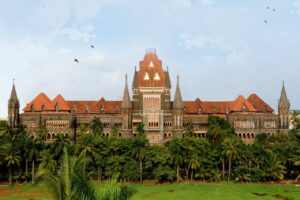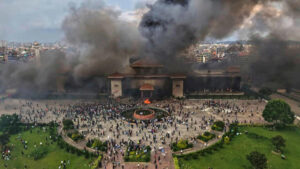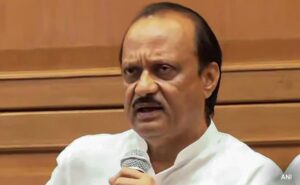Raj Thackeray’s Powerful Address on Gudhi Padwa: Calls for River Conservation, Job Focus, and Marathi Unity

Raj Thackeray’s Powerful Address on Gudhi Padwa: Calls for River Conservation, Job Focus, and Marathi Unity
Here are some important points on which he spoke.
- 1) I thank the voters whose votes were counted in the last election and also those who voted for Maharashtra Navnirman Sena but whose votes did not appear in the Electronic Voting Machines (EVMs). Whatever happened in the election is in the past; let’s focus on what’s next.
- 2) Recent events demand discussion, starting with the Kumbh Mela. Bala Nandgaonkar brought Ganga water, but I refused to drink it. Some newly emerged Hindutva supporters felt I disrespected the Kumbh Mela. But my point was about the condition of our rivers, which we call mothers. Successive governments have failed in river conservation. Rajiv Gandhi initiated Ganga cleaning, and later, Modi took it up in 2014. However, after the Kumbh Mela, millions of devotees fell sick after bathing. The real issue is not about disrespecting Kumbh Mela but about cleaning the Ganga. Despite spending ₹33,000 crore, pollution remains. Are we going to prioritize religion over nature? Rivers must remain clean.
- 3) The same situation exists in Maharashtra. The Savitri River is full of chemicals. Across India, 311 river basins are critically polluted, including 55 in Maharashtra.
- 4) According to pollution standards, the water in Ulhas, Mithi, Mula-Mutha, Savitri, Bhima, Pavana, Kanha, Tapi, Girna, Kundalika, Darna, Indrayani, Neera, Wainganga, Chandrabhaga, Muchkunda, Ghod, Titur, Rangvali, Wardha, Krishna, Patalganga, Surya, Waghur, and Dhorna rivers is extremely bad. Other rivers like Bhatsa, Pedhi, Mor, Burai, Vel, Panjhra, Sina, Kalu, Venna, Koyna, Manjra, Painganga, Purna, Urmodi, and Kan have relatively poor water quality.
- 5) Mumbai once had five rivers, but four have died due to sewage and encroachments. The only surviving river, Mithi, is on the verge of death. Every year, the BMC claims to clean it, but unless the houses along its banks are removed, nothing will change. When we raise environmental concerns, people say it’s against religion. Cremations consume vast amounts of wood, leading to deforestation. Despite having electric crematoriums, many still avoid them. If the Prime Minister is passionate about forests, he should save them.
- 6) India’s birth-death ratio:
- – Daily: 81,746 births and 29,679 deaths; population increases by 50,000 daily.
- – Monthly: 2.45 million births and 890,370 deaths; net growth of 1.5 million.
- – Yearly: 29.4 million births and 10.68 million deaths; net growth of 18 million.
- We complain about drought while destroying forests.
- 7) We are stuck in the debate over Aurangzeb’s tomb. Why is this suddenly a topic? Does watching films remind you of Hindutva but not of Shivaji Maharaj’s bravery? Many politicians talk about history without knowledge. Aurangzeb was born in Dahod, Gujarat. The real agenda is to incite caste conflicts among Brahmins, Marathas, and others. Shivaji Maharaj’s struggle was against multiple adversaries, not just one religion.
- 8) Before Shivaji Maharaj’s time, Shahu Maharaj served under Adilshahi and later Nizamshahi. Why categorize history by caste? Afzal Khan’s lawyer was a Brahmin, and so was the negotiator from Shivaji Maharaj’s side. Decisions were taken based on circumstances, not caste. Even the battles against Mirza Raja Jai Singh and Udaybhan Rathod involved Hindus. Aurangzeb fought against Marathas for 27 years but never won.
- 9) Instead of demolishing Aurangzeb’s tomb, put up a plaque stating, “This is where the Marathas buried Aurangzeb.”
- 10) We should proudly showcase our victories instead of erasing symbols. Schools should teach children how Shivaji Maharaj defeated Aurangzeb. History on WhatsApp is misleading; political forces use caste to divide people.
- 11) Mumbai’s airport and ports are being handed over to Adani. He is smart, but we turned out to be fools.
- 12) The government is busy discussing Aurangzeb instead of real issues like employment and welfare schemes.
- 13) The Mughals were originally Turkish-Mongols. Turkey, under Kemal Pasha, secularized its constitution and removed Islam as the state religion. Today, 50 million tourists visit Turkey.
- 14) We campaigned to remove loudspeakers from mosques, but cases were filed against Maharashtra Navnirman Sena workers. Devendra Fadnavis announced a ban on loudspeakers between 10 PM and 6 AM, but what about the rest of the day? Yogi Adityanath removed mosque loudspeakers in Uttar Pradesh—why can’t we?
- 15) In Beed, Santosh Deshmukh was brutally murdered over extortion money. This was turned into a caste conflict. How does caste become the issue when a person is killed?
- 16) Despite several Maratha Chief Ministers, the Maratha community remains underprivileged. Instead of addressing unemployment and farmer distress, politicians keep people busy with caste conflicts.
- 17) The government cannot sustain schemes like the *Laadki Bahin Yojana*, which costs ₹60,000 crore annually.
- 18) Youth unemployment is ignored as they are busy fighting over caste. Marathi people must unite beyond caste.
- 19) The Torres company lured investors with promises of double returns and looted them. Marathi people are insecure in their own state. If anyone tells us not to speak Marathi, we will respond strongly. Starting tomorrow, visit banks and ensure they operate in Marathi.
- 20) I will read an excerpt from my grandfather’s book Uth Marathya Uth (Rise, Marathi, Rise) written in 1966. It warns how Maharashtra’s true identity is being erased by manipulating history to suit political interests. Even factual historical events are being distorted.
- 21) If Marathi people unite, politicians will struggle. On this Marathi New Year, take a pledge to stand together for the Marathi language and community. If anyone challenges Marathi pride, we will respond as Marathi people. If anyone threatens Hindu identity, we will respond as Hindus.
- 22) A dedicated Maharashtra Sainik (party worker) named Pramod Arane walked from Ahilyanagar to Kolhapur’s Ambabai Temple before attending this rally. Such individuals inspire me.









